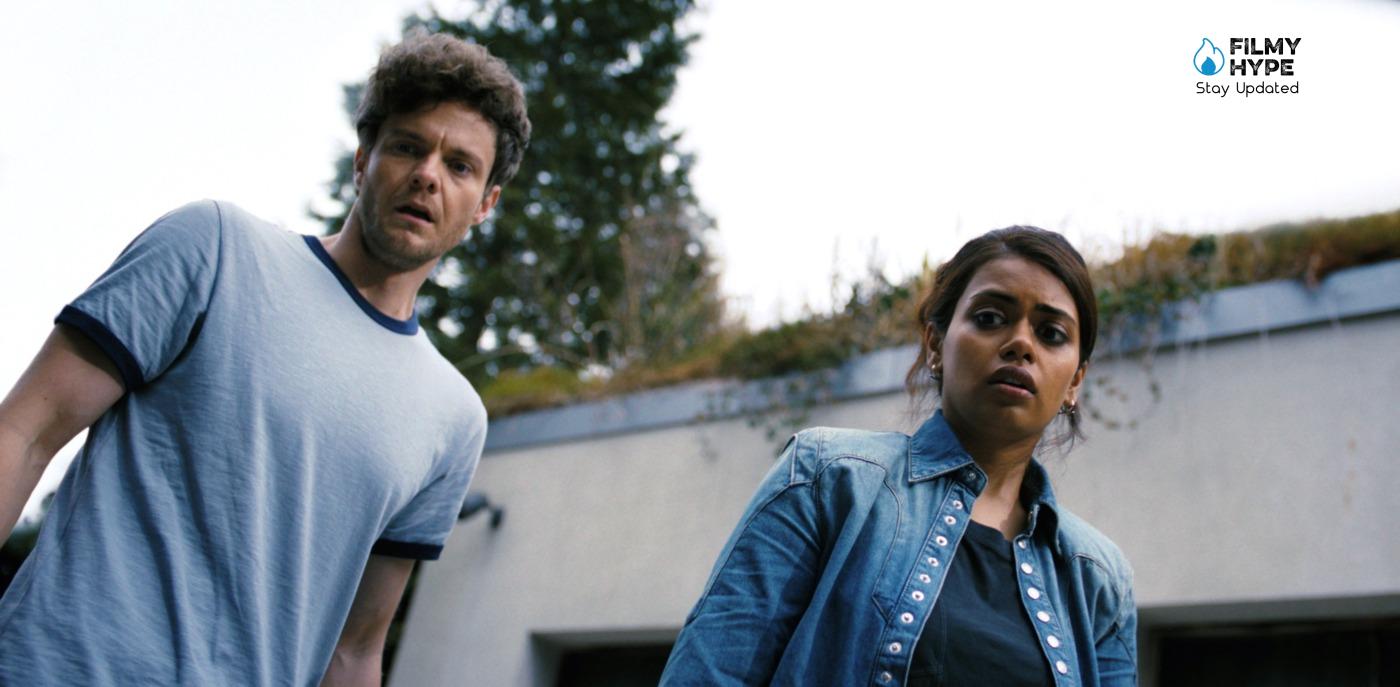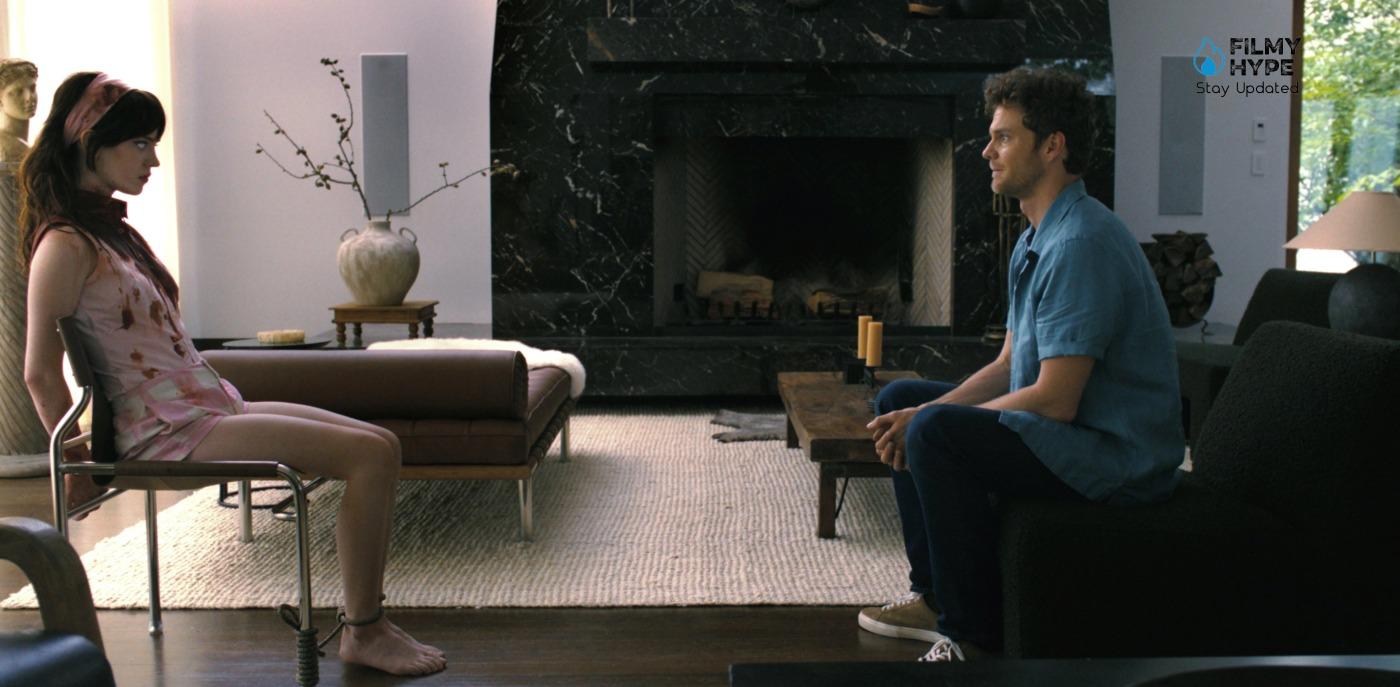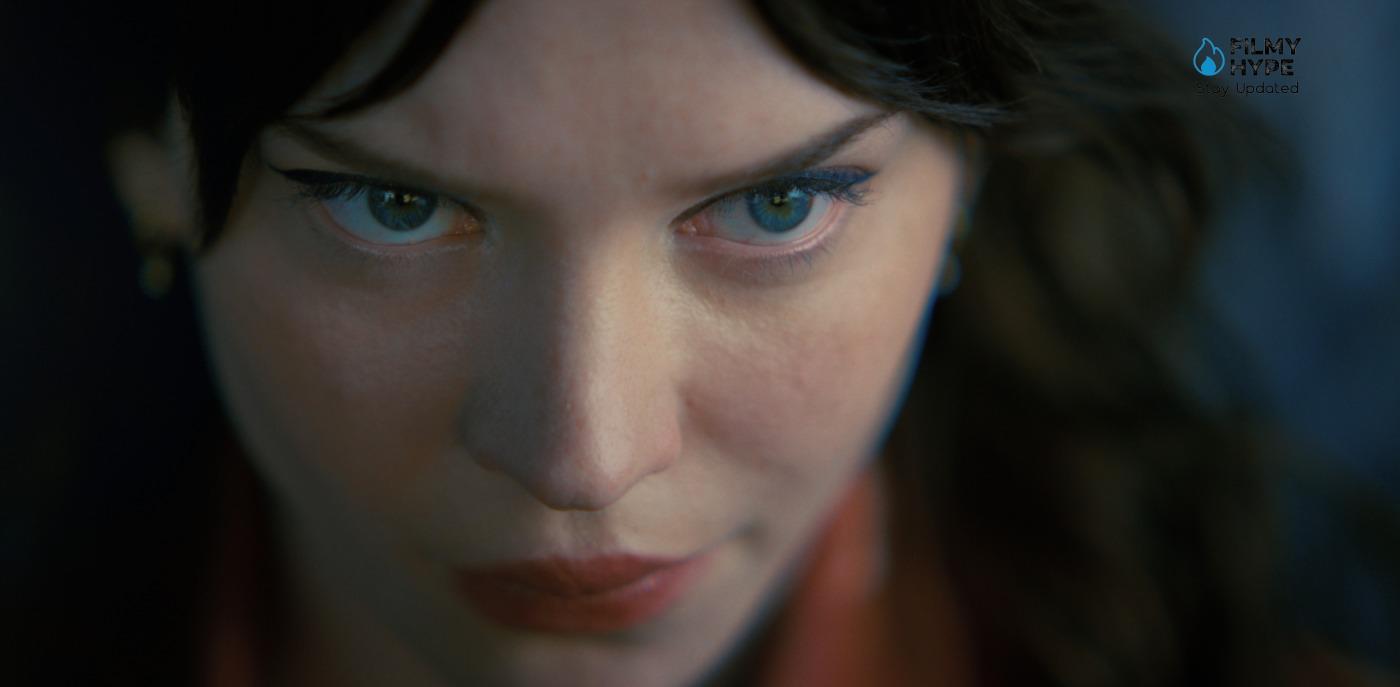Companion Movie Review (2025): Film About Relationships You Should Go to the Cinema
At the cinema since January 30, our review of Companion Movie, an interesting thriller with sci-fi veins that between ups and downs, entertains unpretentiously. Surprises, twists, manipulations, dream girls and frustrations, a little splatter’, a little suspense, sharp humor, and a lot of adrenaline: give a vigorous mix and you will get the recipe behind Companion. Released to the cinema on January 30, the film is written and directed by Drew Hancock and sees Sophie That as protagonist Lukas Gage, Meghan Suri, Harvey Guillén and Rupert Friend who are Sergej, Kat, Eli, and Patrick. In some respects, this Companion represents the emblem of the wasted opportunity. Depending on how you look at it, there is the full part of the glass that defines it as a good film despite the defects. Free choice in the free world, after all. After Barbarian, a film that catalyzed attention in a Manichean way, Drew Hancock returns to directing a film with multiple nuances, especially social in its subtext, not too veiled, oscillating between thrillers and sci-fi (and why not, also revenge story). To dominate the scene, a very good and beautiful couple like Sophie Thatcher and Jack Quaid, well directed on the launch pad towards the stars.

More than a positive story about artificial intelligence, as stated by the director and screenwriter Drew Hancock, looks like one of those scripts suggested by AI itself. Prompt: tell me a love story about artificial intelligence that contains horror cinema elements. Probably things will not have gone like this, but the result comes very close to it. Among the many defects that afflict Companion, what catches the eye is its nature as a self-generated and vaguely anonymous product. You understand this from the compilatory structure of the script, where it is easy to recognize plot blocks and pieces of speech belonging to imaginary and encoded strands. Starting from the use of the narrative voice of the protagonist (Sophie Thatcher), the typical hyper-insecure and extra-in-love girlfriend of the predictably str **** ( Jack Quaid), a gimmick of many American rom-coms, also typographically evoked by the use of the opening titles of a font such as the pinyon script, which however is also used in an antithetical and disturbing key from postmodern horror to Pearl (even the one with openly feminist intent). Or from the situation that frames and triggers countless films, the reunion between friends in a house near the lake.
Companion Movie Review (2025): The Story Plot
Iris is a girl in love, so in love that to immediately declares that the best days of her life were two, one of which was when she first met Josh, her boyfriend. He remembers it as it was now: he was shopping at the supermarket, when he found himself in front of this handsome and clumsy guy who, to take an orange, combined a disaster that would have been impossible for her not to soften and then look into her eyes and burst to laugh together. From that first glance, Iris’ heart started beating for Josh and the two are now inseparable. We find them in fact at the beginning of a weekend in the countryside with friends. In the large house by the lake of the ambiguous Russian Sergei invited his lover and their friend Kat, together with the couple Eli and Patrick. Josh is recommended before entering the villa with Iris: “Do not do the strange one, do not do the depressed one, smile, be happy”, commands more than advice, at the beginning of a weekend than in his mind, and unbeknownst to the girl, she foresees much more than relaxation and long walks.

Josh has a diabolical plan and studies with Kat, Sergei’s lover, who completes plans to guide Iris to do what they want but do not dare to do. When Iris hits, however, something goes wrong. Iris is not only his girlfriend, he is a robot of advanced technology, which he uses to satisfy all his desires, but also with the most refined machines, especially if made in the image of human beings, short circuits, awareness and, finally, the rebellion in this film always becomes a risk around the corner. It is difficult to tell the story of Companion without running into annoying spoilers. Also, the first twist is revealed after a few minutes (and we are not talking about the one already stated in the trailer). Reducing to the bone, Iris and Josh are a couple on vacation with his friends. The death of the owner of the mansion will upset the balance of those present, especially Iris, who will face challenges not only of survival but above all existential.
Companion Movie Review (2025) and Analysis
Josh is unhappy with his life and decides that there is only one way to have the girl of his dreams: to buy a robot comfort, a machine built with the specific objective of giving emotional support to human beings who are no longer able to socialize, nor to do many other things. A hypothesis that is not so science fiction, given that in different places in the world, for example in Japan, this type of very sophisticated robot already has a thriving market. Iris, however, is truly Josh’s dream woman in all respects, because it is he who not only commands her what to do but also shapes her in all her characteristics. Obviously in appearance, but above all in intelligence, which for the ideal woman is kept under enough, then character, strength, etc. Josh’s ideal woman is docile, obedient, and manipulable at will and he can lead her to do anything, including atrocities and crimes.
But when Iris discovers the truth and realizes that she is not what she believed, but something that has reason to exist only for its buyer, the unpredictable happens: an awareness that blows up the caps and makes Iris finally, totally, human, with his survival instinct and his desire to rebel, despite being “set” by his master. Will he succeed? The film is the story of this adrenaline, at times insane, and unleashed rebellion, between twists and turns, splatter aesthetics, and funny jokes. The tone that prevails is in fact that of the lucid and bitter comedy, in a story made of manipulation, deceptions, and frustrations of the character of Josh who, the more he goes on, the more he discovers in all his selfishness and all his irremediable human baseness, while Iris and, despite being what she is, seems to be much more comfortable with the concepts of emotion, feelings, loyalty, morals. A fun and surprising film, all to be discovered.

Gradually to rise in references: the approach to Get Out in Pink Sauce; the anthropological suggestions to the Her: spare parts of one M3GAN adult and empathies of ’AI Spielbergian. In a contamination or, better, brazen overlap, of imagination, which also includes testosterone phenomenologists, advanced inflatable dolls, gentle terminators, and problematic IQs (basically the intellectual dimension of teen horror). A sort of poster of the film Frankenstein, complete with a title and subtitles for the most careless, naturally marked by an aesthetic-moral ecumenism that does not disturb anyone. Not without interest, however, for its hidden internal functioning, so similar to the mechanisms of learning artificial intelligence (of which, however, it ends up not by chance to support the reasons), with this idea of script trained on the texts of the cultural industry and the model machine learning applied extensively, even in the set design micro-processes. The film does not hide it and uses, knowingly or not, its narrative avatar as the interface of its hidden software (who will see the film will understand the reference).
Forgive yourself for some clues that might leave you doubtful about the film right away. Not real spoilers, which we will carefully avoid but it is inevitable to run into unsolicited information that goes beyond the simple “it’s beautiful“, or “it’s ugly“. Also, because Companion is a difficult film to frame, as mentioned at the beginning of this article. Certainly, its socio-political side will inevitably lead to creating a cross-section between the public, thanks (or because) for its intrinsically feminist being, terminology that today never scares a lot. Like in a long episode of Black Mirror, Companion is a film that lacks directorial flashes, if not towards an unexpectedly raw and violent ending, which sees Jack Quaid as the perfect performer. With his clean face, as a person who wouldn’t hurt even a fly (as often happens in The Boys, more or less), his despicable actions, together with his equally revisable speeches, expand the sense of disgust that the film wants to restore to the viewer.

Actions and behaviors therefore enclosed in a man, Josh, who represents the pure emblem of a poor loser abandoned by anything living and not, and who must manage as he can to obtain listening and affection. In short, humanly sorry to see people like this but then one wonders why, and above all what he does to react to this “social injustice”. This is a theme that Alex Garland had in-depth with Ex Machina, giving way to an infinite series of quotes that support the entire film. We pass by Westworld up to giveaways openly declared a Terminator. Films where androids and artificial intelligence command and dominate the world, with reflections also current. But dystopia is not the centerpiece of this Companion, which does not enjoy a brilliant script like those of the audiovisual products just mentioned, let alone an equally good direction. There are too many dilutions present in the film that we remember last just over ninety minutes. Enough is enough to understand that writing and directing do not seem to be very coordinated with each other, especially if you are witnessing an almost useless scene twice.
Yet despite these evident defects that would make the nose twist several times and therefore leave the room very dissatisfied, there is the social theme that allows the film to remain alive until the end. Although it also lives on moments, now serious, now less, Companion reinterprets in its way the dystopia of the machines that rebel against man, telling their point of view. Objects exploited to please themselves humanized as much as possible, and let themselves be lived in the image and likeness of the middle and mediocre man, exploited by the world and who vents on those who (or what) allow him to have power. In this context, Companion therefore speaks of the role of women in a micro-society, made up of handmaids and masters, of those who want to submit to the rules and those who, on the other hand, somehow manage to free themselves from exploitation.

A little like A Promising Woman, the escape route to Iris and precisely masked revenge, a carnage functional to close a circle that runs out with a final counter field, made of looks and awareness, the one that she has never been able to have. An overall judgment on that glass will therefore remain with the final eye of the spectator. Half full or half empty that it is, at least for the writer, Companion is a film that however gives that well-acted splatter entertainment that is impossible to resist. Despite the obvious problems of writing and directing, the film lets itself be watched, rising a little in the bloody and liberating ending, thanks above all to the only positive note that immediately catches the eye, namely the cast. Side note: if it were released directly on the platform, it would have become the most classic cult film, also and above all for how it is set.
Marketing can be both an ally and a dangerous opponent for a film. First impressions, due to trailers and social posts, inevitably influence expectations. Sometimes, the hype generated is so high that we tend to judge a film negatively just because we have been conditioned before. Often we happen to be watching a film that we didn’t like previously and to change our mind. Unfortunately, the content they advertise Companion, the first work of the screenwriter Drew Hancock, anticipates to the public a rather important turning point in the plot that the film reveals only after half an hour. Perhaps the most attentive will be able to guess it after a few scenes, but it is a pity. Hancock’s script, engaging and disturbing at the right point, creates the right wait before the gears of this mysterious love thriller start spinning. And all this is thwarted by marketing.
In Companion, Sophie Thatcher (known for the horror movie Heretic) plays Iris, a girl madly in love with Josh (Jack Quaid, famous for the series The Boys), the perfect guy. As in a typical romantic comedy, Iris is convinced that she has found the love of her life, at least until, as the narrating voice reveals, she kills him. The actual story begins with Josh and Iris on their way to an isolated dream villa to spend a weekend with friends. The group, made up of rather eccentric characters such as the homeowner Sergey, his unpleasant Kat girl, the cute Eli, and her charming boyfriend Patrick, finds himself living a nightmare weekend. When violence explodes in the second part of the film, Companion turns into a hallucinatory trip seasoned with a little blood that focuses on the relationship between Iris and Josh, laying bare the relationship and forcing them to reveal their true nature and their true intentions.
The director’s black humor accentuates the feeling of unease that makes you shiver and laugh at the same time. Thanks to solid writing, Hancock builds an atmosphere of suspense, playing with the clichés of various genres. The film explores themes such as jealousy, possessiveness, and manipulation, offering subtle but incisive social criticism. Sophie Thatcher is the true revelation of the film. Initially shy and affectionate, she undergoes a radical transformation when cornered. Its priorities change drastically: freedom becomes its most precious asset, overcoming any other bond, including love. Quaid, with his charm as a good boy, perfectly interprets the role of the manipulator, skillfully concealing the darkness that hides behind his innocent appearance.

Hancock masterfully manages to balance the initial romantic and jovial atmosphere with horror comedy elements, creating an interesting story full of twists. The script plays with the expectations of the public, constantly surprising it without ever betraying it. The ending is quite phoned but honestly one could not have expected better from such a title. It is certainly not an original film and many found are taken here and there from films like Lucy, Ex Machina is Limitless, but as a low-budget work, it has its own dignity capable of surprising even when it seems to have anticipated events. If you are looking for a romantic thriller with a hint of horror, Companion might be right for you.
Companion Movie Review (2025): The Last Words
Ultimately, Companion is a two-level operation: at first, it looks like a sophisticated form of pastiche discursive, however, lacking rhythm, originality, and, net of isolated explosions of violence, true malice (despite the name of Zach Cregger campsites in production credits). The point is not that it doesn’t work properly, but that it works too much. On a deeper level, on the other hand, it is a successful form of tutorial on the automatisms and risks of today’s film industry, increasingly implicated by the mechanisms of automatic writing and by the logic of the ratification of the new ICTs. Here the film becomes an interesting automate. If it were also wanted, it would be well-thought-out satire.
Stars: Sophie Thatcher, Harvey Guillén, Jack Quaid
Director: Drew Hancock
Where to Warch: In Theaters
Filmyhype.com Ratings: 3.5/5 (three and a half stars)






